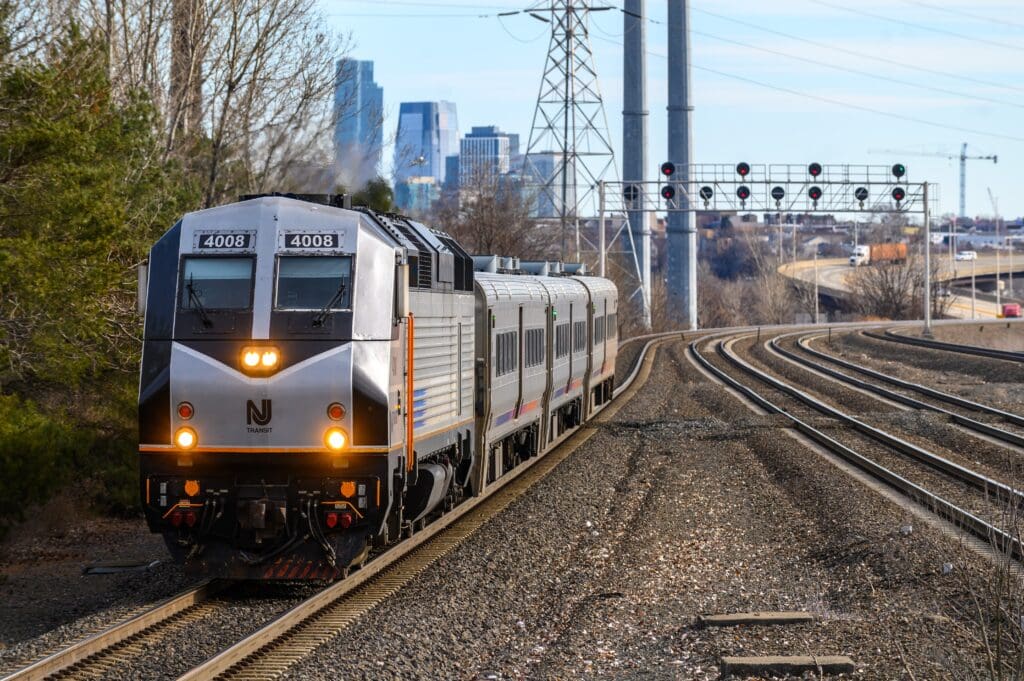NJ Transit commuters face delays and cancellations at far higher rates than riders on New York’s other commuter railroads, a Bloomberg analysis shows.
From May through July, about one in every 18 NJ Transit trains was delayed at least 15 minutes or canceled entirely. For the average rider, that meant a burdened commute about once every two weeks. By comparison, commuters on Metro-North and the Long Island Rail Road faced similar disruptions only a handful of times a year.
Through day-by-day analysis, Bloomberg found that June 23 was one of the worst evenings of the entire year for NJT commuters. Half of NJ Transit’s outbound trains from New York Penn Station ran late or never departed. A mix of Amtrak signal problems, a brush fire, and mechanical breakdowns caused 28 significant delays and 15 cancellations. In the same window, Metro-North logged only three major delays and no cancellations. The LIRR reported none.
The gap was consistent across the summer. NJ Transit had more than 1,000 trains delayed over 30 minutes, while Metro-North and the LIRR recorded about 300 each. Mechanical issues alone forced NJ Transit to cancel 686 trains in three months.
Old equipment plays a role in the delays. A 2018 audit found more than a third of NJ Transit’s rail cars were over 25 years old, compared to 28 percent at LIRR and 14 percent at Metro-North. Breakdowns are more likely because many NJ Transit trains rely on single locomotives, unlike the self-powered cars common on the MTA-run lines.
Funding has also been a challenge. Under Governor Christie, New Jersey shifted about $8 billion away from long-term capital projects to cover operating costs, leaving the system short on new equipment and upgrades.
NJ Transit disputes parts of the Bloomberg review, saying real-time feeds are not fully accurate and pointing to federal reporting standards it already meets. The agency reported a 91 percent on-time rate for the summer when delays caused by Amtrak were excluded.
Relief is on the way, but many argue it won’t come quickly enough. NJ Transit expects to introduce 374 new multilevel cars beginning in 2026, with full modernization by 2031. A new corporate transit tax and the $16 billion Gateway Program are meant to stabilize funding and expand capacity. But until those arrive, the analysis shows New Jersey commuters remain the most vulnerable to major disruptions in the region.
The New Jersey Digest is a new jersey magazine that has chronicled daily life in the Garden State for over 10 years.
- Staffhttps://thedigestonline.com/author/thedigeststaff/
- Staffhttps://thedigestonline.com/author/thedigeststaff/
- Staffhttps://thedigestonline.com/author/thedigeststaff/
- Staffhttps://thedigestonline.com/author/thedigeststaff/


